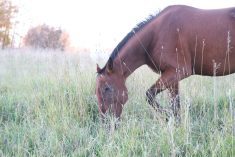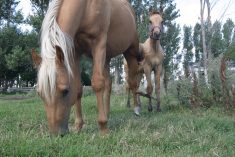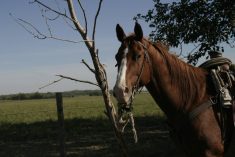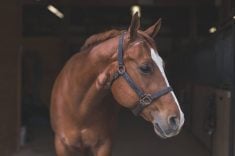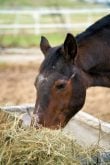Despite horses being described as one of the most perceptive of all animals, research on equine sensory abilities is limited and has mainly focused on hearing and vision.
Although olfaction, or the sense of smell, has only been studied sparsely, the highly developed and sophisticated anatomy of the olfactory system in the horse with its long nose, expansive nasal and sinus cavities suggests smell to be a central sensory modality for the horse.
Furthermore, the unique neurological connections of the sense of smell to and within the brain implies that this sense plays an extensive role in the inner world of the horse.
Read Also
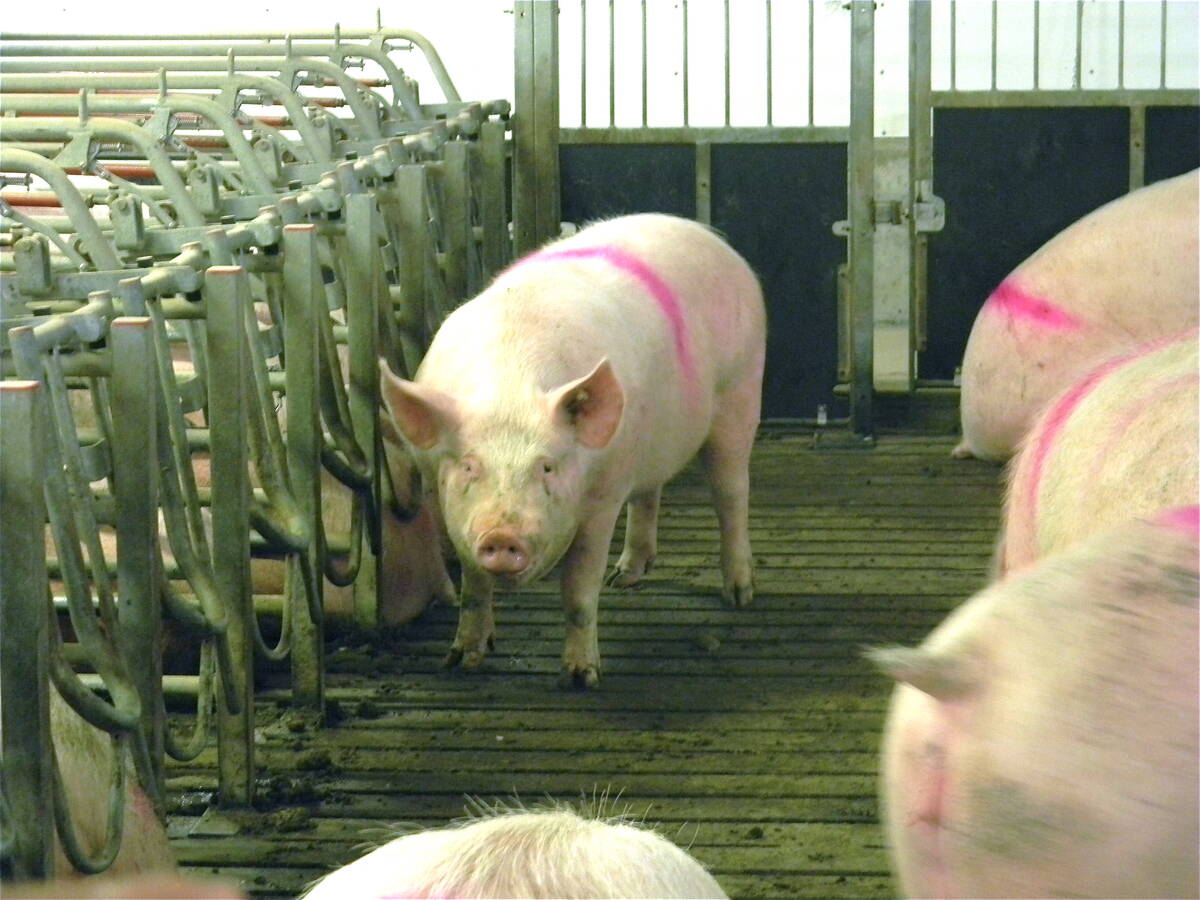
PRRS: The $1.4B ‘mystery’ still haunting hog farmers
For 30 years, this highly mutative virus has devastated the pork industry, outsmarting vaccines and requiring extreme biosecurity to control.
The sense of smell is based upon physical stimulation of ciliated (hair-like) receptor cells in the nasal and oral cavities by volatile, chemical substances. Smell is unique amongst the five senses because the receptor cells are themselves neurons and nerve cells with a direct link to the brain. The tiny ciliated receptor nerve has one end in direct contact with the external world and the other in direct contact with the brain. As such, smell is the only sense that is NOT processed in a brain structure called the thalamus before reaching the cerebral cortex. Scent skips the thalamus and the information that it carries goes directly to a tiny area of the brain called the amygdala, where emotions are processed and then to the adjoining hippocampus where learning and memory formation take place.
This unique network of neural connection means that the information received from the sense of smell is carried directly to the higher brain centres where emotions are processed and learning and memory formation take place. As such, the sense of scent has an unrivalled power to evoke emotion, memories and influence learning. Thus, the sense of smell can become deeply associated with a certain experience.
Horses use the sense of smell to learn about their environment. The scent relays a story to the horse and the information it receives complements the senses of hearing and sight which are perhaps more highly attuned to movement and information at a distance. The horse uses scent to take care of its curiosity and feel safe in its surroundings.
Therefore, the horse’s desire to stop and sniff does not stem from disobedience, rather the horse is attempting to get more complete information about its surroundings and current situation. The information and emotion derived from scent shape the horse’s behaviour both in the present moment and in preparation for future moments. It has been developed this way on purpose over the course of millions of years. The nose has been a powerful source of information for the horse whether foraging, mating, early foal-mare bonding, social interactions or recognizing predators.
Through science, we now understand that hair samples from individual horses have a unique profile of volatile organic compounds which bestows an odour profile upon the animal. Odour profiles amongst horses share a certain degree of similarity between related individuals, indicate a degree of kinship and are used by horses for social recognition. Unlike the dog that often uses backside sniffing to download information about another dog, horses greet and sniff one another and in doing so perhaps convey information regarding the individual and its social coherence. This type of recognition would be considered to be of evolutionary benefit in an animal that prioritizes social structure.
Odour profiles and scent are not limited to the individual horse. Humans also have a scent profile, as do tack, equipment, trailers and physical structures. Scent profiles can and do affect the responses of horses, both favourably and not so favourably. Italian researchers have confirmed that horses have physiological responses to specific odours found in human sweat that reflect emotions like fear and happiness. The scent profile left by one horse in an environment has the potential to emotionally influence the next horse in the cue. Think halters, trailers and even human handlers.
Whilst the horse’s ability to scent detect is not thought of to be as impressive as that of a dog, it is beginning to appear from field experience that the horse’s ability to smell is nonetheless impressive. In their natural environments, horses use their scent-locating abilities to search for choice feed, minerals, water, their own kind and to avoid danger. Historically, examples can be found where early pioneers and Indigenous people relied on the horse’s scenting abilities to find water, warn them when danger was near and for hunting.
This natural ability of the horse to follow a scent trail can be developed and cultivated through channels of horsemanship into scent work. Scent work is a growing discipline in horse-human relationships. Nose-work is mentally challenging and activates the horse’s seeking system which makes the horse feel good. As it turns out, horses love a good game of hide and seek. The skill level of air-scent detection in the horse-handler team can develop to the level of employment in professional tracking services. The “professional” scenting horse goes into the scent-locating mode when given special cues. Horses have been trained to follow airborne scent to its source, which could be a missing person or designated target.
Since scent has a powerful emotive influence on the horse the use of unique aromatic compounds such as essential oils can be purposely employed to improve the emotional welfare of horses bringing up “good” associations with familiar and calming odours. Lavender in particular has been shown to alleviate high levels of stress or anxiety in horses.
Horses have a highly developed sense of smell which weaves associations and relationships upon their mental and emotional landscape. An understanding of the unique neurological hookup between the horse’s sense of smell, perceptual world and subsequent behavioural responses informs and enriches the worlds of both the horse and the human.




